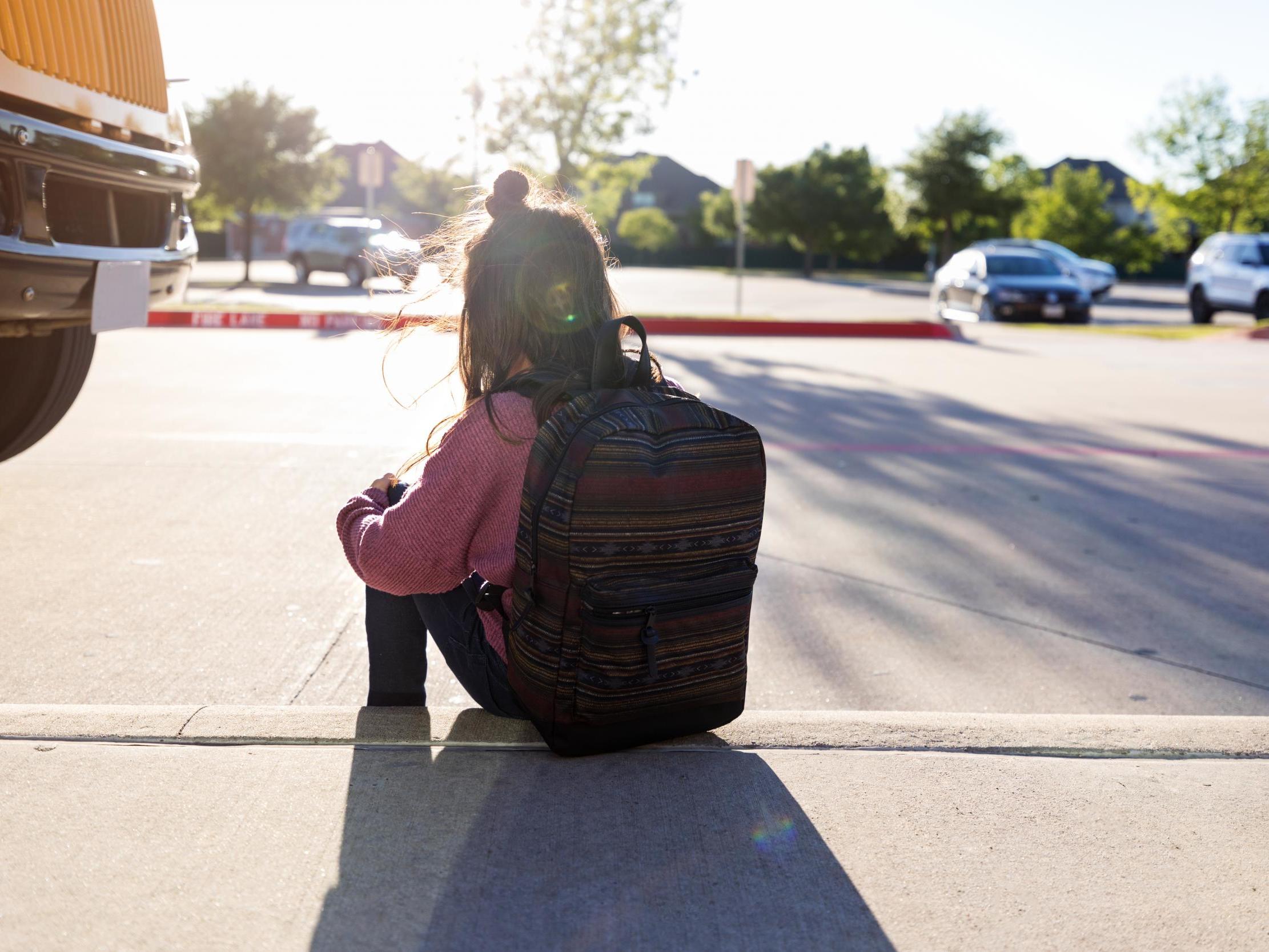Gypsy, traveller and black Caribbean pupils at least twice as likely to be permanently excluded from school, figures show
‘We need to see education staff being aware of the background of the community,’ Roma charity worker says

The permanent exclusion rate for Gypsy and Roma, Irish traveller and black Caribbean children was at least double that for all students in England over the 2018-2019 academic year, new statistics show.
These pupils were the most disproportionately expelled over this period, a breakdown of data by different ethnicities showed.
Government figures found pupils from a Gypsy/Roma background had a permanent exclusion rate of 0.39 – equivalent to 39 children per 10,000 – from school during this time.
This was the highest proportion across any ethnicity, and nearly four times the national rate for all students.
Data from the Department for Education (DfE) shows more than 7,800 permanent exclusions were handed out in the 2018-19 academic year – the latest year with available statistics.
Children within the Traveller of Irish heritage ethnic group had an permanent exclusion rate of 0.27 (27 per 10,000 pupils), and the rate for black children of a Caribbean background was 0.25 (25 per 10,000 pupils) – both more than double the national rate of 0.1 (10 per 10,000 pupils).
The figures also showed poorer pupils – those on free school meals – were around four times more likely to be expelled than their classmates.
Speaking about the high rates for Roma children, Mihai Calin Bica from Roma Support Group, a charity, told The Independent he thought more cultural awareness in schools could help support these students.
He explained how Roma have suffered segregation and discrimination in education in eastern Europe, and how that can affect communities attitudes towards school in the UK. For example, families may not fully understand the expectation of high attendance if this were not pressed on this in their countries of origin, he said.
“We need to see education staff being aware of the background of the community,” Mr Bica told The Independent. “We need to see measures and resources from the government in place that schools can use to better engage with Roma communities.”
Sarah Mann, the director of Friends, Families and Travellers, told The Independent there was a “horrific level of bullying and racism” experienced by Gypsy and Traveller children, which she said “can lead to pupils being excluded if they retaliate”.
Another issue includes parents potentially struggling to support their children “if they missed out on education themselves”, she said.
Schools have also been accused by teachers and campaigners of unfairly punishing black students with policies over what hairstyles are allowed, wearing bandanas and “kissing teeth”, a sound common in African and Caribbean culture.
The Independent reported earlier this year on the founder of No More Exclusions, a campaign group, suggesting black pupils may be treated more harshly by some teachers due to a lack of cultural understanding.
Pupils were permanently expelled on 7,894 occasions in 2018-19 – down from 7,905 in 2017-18, the DfE’s new figures show.
Liberal Democrat education spokesperson Layla Moran said: “These figures make appalling reading. Every year thousands of children – often the most vulnerable – are being written off by our education system.
Ms Moran, who is calling for a review into school exclusions, added: “This government should be ashamed that they have presided over continually high rates of permanent exclusion.
“We need to see action to address the disproportionate number of exclusions among pupils on free school meals, as well as black Caribbean, gypsy and Roma, and Traveller pupils.”
The new DfE figures show Gypsy/Roma and Irish traveller ethnic groups had the highest rates for permanent and suspensions in the last three academic years with available data.
The total number of fixed-period exclusions – also known as suspensions — rose from 410,800 in 2017-18 to 438,300 last year, the data shows. This is equivalent to around 2,307 children a day being suspended from England’s state schools.
Headteachers suggested the rise was down to a squeeze on budgets and cuts to children’s services.
This increase in suspensions has been driven by more pupils having repeated fixed-term exclusions, according to the Department for Education (DfE).
Anne Longfield, the Children’s Commissioner for England, said: “The number of children in England being excluded permanently from school is still unacceptably high and the number of children being excluded temporarily is increasing.”
A DfE spokesperson said: “We will always back headteachers to use exclusions as part of creating calm and disciplined classrooms that bring out the best in every pupil, but permanent exclusion should only ever be a last resort. The practice of ‘off-rolling’ a pupil is unacceptable, and we are clear that pressuring a parent to remove their child from school or using ‘informal’ exclusions is unlawful.
“Being excluded from school should not mean exclusion from good quality education – that’s why we are taking forward ambitious plans to rapidly improve the availability of good Alternative Provision, to improve behaviour and to make managing behaviour a core part of early teacher training.”
They added: “We know that some pupils will return to school in September having experienced loss or adversity as a result of the coronavirus pandemic, which is why we have also provided guidance for school leaders on how to re-engage these pupils and create the right classroom environment to help them thrive.”
Additional reporting by Press Association
Subscribe to Independent Premium to bookmark this article
Want to bookmark your favourite articles and stories to read or reference later? Start your Independent Premium subscription today.

Join our commenting forum
Join thought-provoking conversations, follow other Independent readers and see their replies